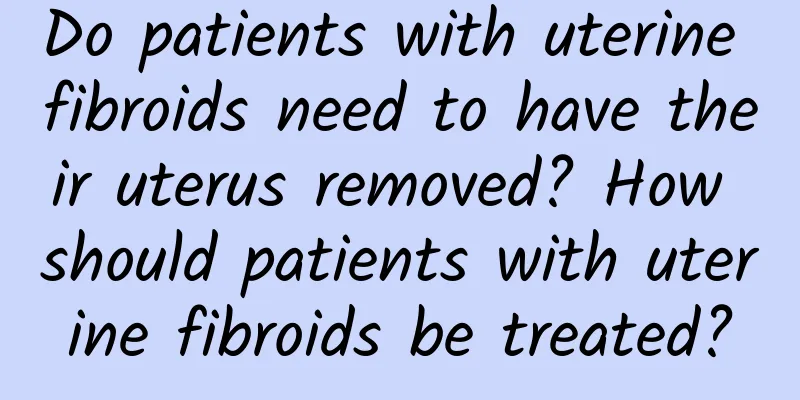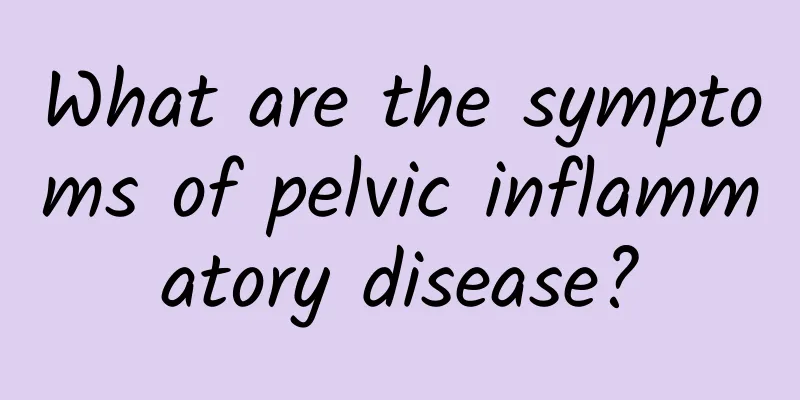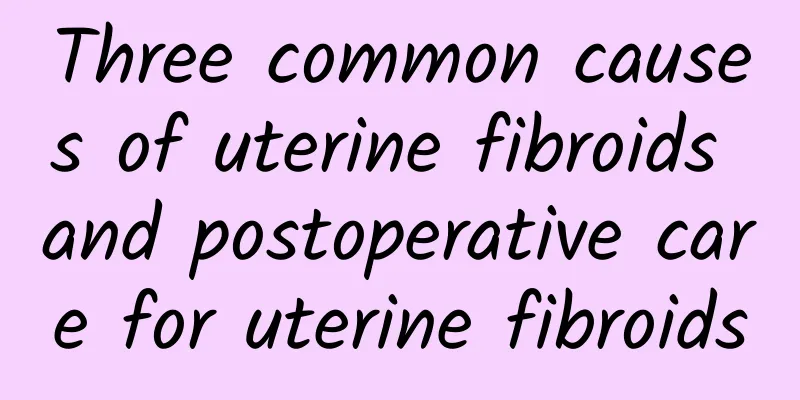Do patients with uterine fibroids need to have their uterus removed? How should patients with uterine fibroids be treated?

|
After a clear diagnosis of uterine fibroids, which patients are suitable for myomectomy and which patients are suitable for hysterectomy? In the medical community, the relevant standards have been changing. The uterus is very important for maintaining the physical and mental integrity of women. Even after the mission of childbirth is completed or even after menopause, the uterus is still valuable to women. So, is it really good to insist on not removing the uterus? A woman with uterine fibroids refused to have 55 tumors removed from her uterus four years later Four years ago, a 36-year-old female patient underwent surgery for uterine fibroids in the hospital. The first time, 27 tumors were removed. Because she had a tumor constitution, the doctor recommended that she remove her uterus, but she insisted on leaving the uterus. The reason was that her child was only 3 years old at the time, and she was worried that if the child had an accident, she would not be able to have another child. A year later, she went to the hospital again and found that she had a small amount of uterine fibroids in her uterus. Three years later, 55 tumors grew in her uterus again. However, the patient finally insisted on not having a hysterectomy. Which patients need a hysterectomy? If the fibroids are larger than 250cm, the patient has symptoms such as menstrual changes, anemia, compression, but has no fertility requirements, or more than 4, or the possibility of malignant changes is suspected, a total hysterectomy should be performed. If such patients choose myomectomy or subtotal hysterectomy, there may be risks of fibroid recurrence and residual cervical cancer in the future. The advantage of total hysterectomy is that it eliminates the possibility of fibroid recurrence and avoids the occurrence of residual cervical cancer, but it may affect the blood circulation of the ovaries, damage the supporting structure of the pelvic floor, and cause vaginal or rectal prolapse. Subtotal hysterectomy is suitable for patients who have excluded cervical lesions, have complicated conditions (such as severe pelvic adhesions), or have difficulty in cervical resection. Although subtotal hysterectomy preserves the integrity of the pelvic floor and can avoid or reduce the occurrence of postoperative prolapse, there is still the possibility of cervical lesions, such as cervical stump myoma, cervical stump cancer, etc. Why only remove the uterus and not the ovaries? Some patients with uterine fibroids retain both ovaries during hysterectomy, but since nearly half of the blood supply to the ovaries comes from the uterine artery, hysterectomy cuts off the uterine artery, affecting the blood supply and nutrition of the ovaries, which can also lead to ovarian dysfunction, early hot flashes, sweating, irritability and other menopausal symptoms, and the onset age of osteoporosis, hypertension, heart disease and other elderly diseases is also correspondingly advanced. According to statistics, the age of ovarian failure after hysterectomy, that is, the aging age, is 4 years earlier than that of women who do not have their uterus removed. Due to the decline in ovarian endocrine function, estrogen secretion decreases, vaginal discharge decreases after cervical resection, vaginal dryness and discomfort during intercourse may occur, and vaginal shortening after hysterectomy will also have a certain impact on sexual desire. Therefore, these patients also need estrogen replacement therapy. |
<<: Do I need surgery for uterine fibroids? Medication for uterine fibroids
Recommend
Liposuction is not suitable for everyone. 7 conditions to be assessed beforehand
Liposuction is a professional technique that can ...
Balcony farmers' most "homely" dwarf rice
Want to experience the fun of growing rice on you...
What is the reason for scanty menstruation?
The reasons for scanty menstruation may be relate...
Tips on how to lose weight that you must know (Part 1)
Is it frustrating: Why can your friend stay slim ...
Do uterine polyps require surgery? Consider the actual situation
How patients with cervical polyps should be treat...
Will wearing braces make you thinner? Famous weight loss doctor: If you eat the wrong food, you will still be fat!
"Wearing braces will make you lose weight!&q...
What are the 4 symptoms of female ovarian cysts?
What are the symptoms of female ovarian cysts? 4 ...
How much do you know about the causes of vulvar leukoplakia?
The causes of vulvar leukoplakia are very complic...
Standardized diagnosis of hyperprolactinemia
Speaking of hyperprolactinemia, many friends will...
What are the early symptoms of habitual miscarriage?
Habitual miscarriage is a huge blow to expectant ...
What is the best medicine for uterine fibroids? How to take medicine for uterine fibroids
Nowadays, the incidence of gynecological diseases...
What are the treatments for early cervicitis? Early cervicitis is recommended to be treated in this way to be effective
If early cervicitis can be detected in time, it w...
What is candidal vaginitis?
Vaginal candidiasis is a common vaginal inflammat...
If you always fail to lose weight, eating at the wrong time may be the culprit! Don't eat these five bad foods after 7 p.m.
There are reasons why you always fail to lose wei...
What juice is good to drink after uterine fibroid surgery? What tea can I drink after uterine fibroid surgery?
Uterine fibroids are a common female disease, and...









